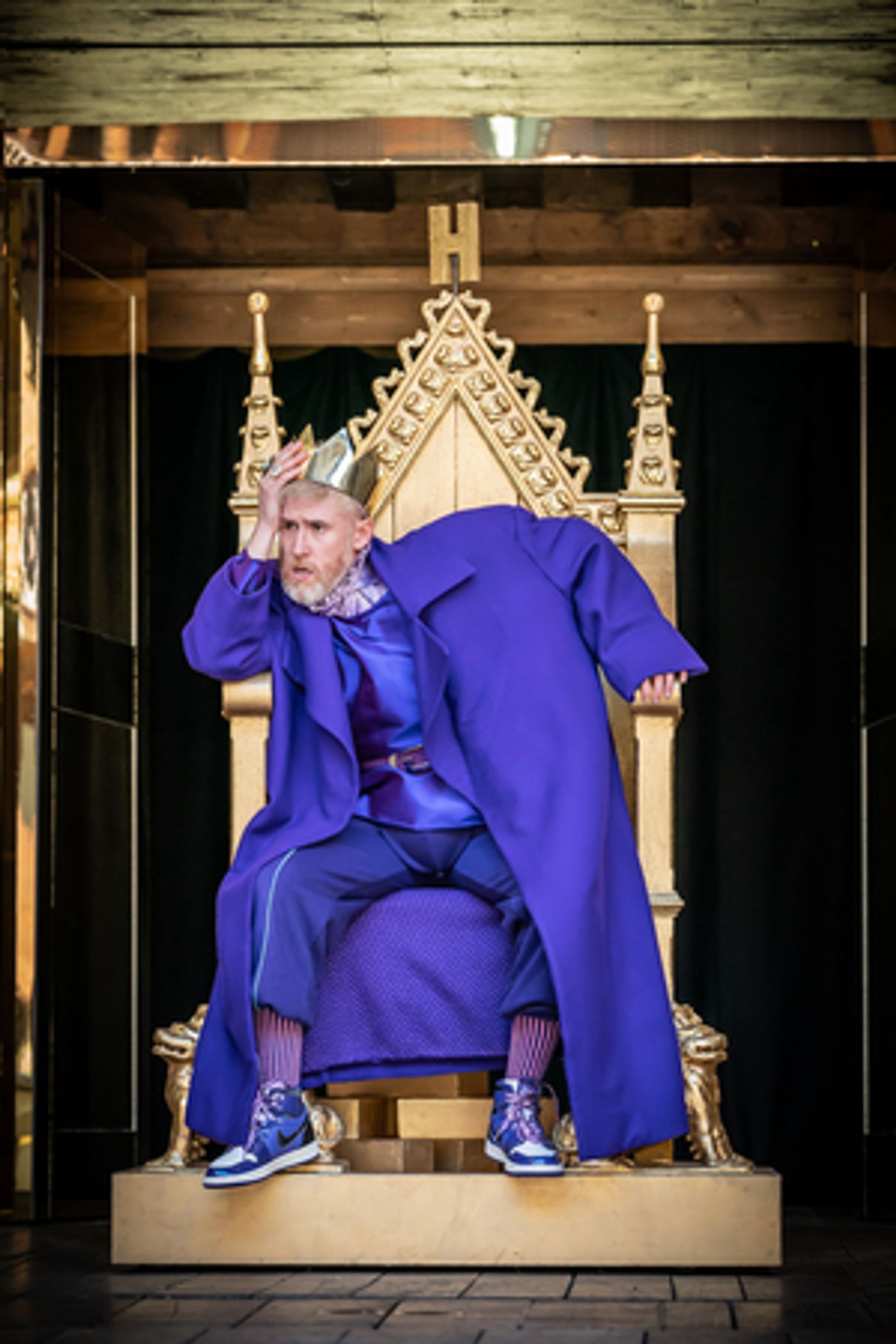Review: HENRY VIII, Shakespeare's Globe
Hannah Khalil's provocative adaptation challenges an archaic legacy of male dominated power

![]()
As the most notorious monarch in British history, Henry VIII's rule was tyrannous and imposing. Known for his colossal physique and consort of six unlucky wives, Henry Tudor has long stood as an example of the damage done by brutish men with excessive power. His reputation as a prolific abuser of women has inspired an array of assertive feminist theatre and this offering by Shakespeare's Globe is no exception.
Shakespeare's original text has been skilfully adapted by writer Hannah Khalil, who's intention was to "sculpt the play into an exploration of the female experience." Using existing Shakespearean text, Khalil has formed a new language for the Tudor queens to traverse the impact of their own suffering. This production is poignant in its depiction of women as functional objects for Henry, not as equal beings. Amy Hodge's direction makes a pantomime of the patriarchy upon which his scandalous rule resides.
The action follows an imprudent, lean, and frequently half-dressed King Henry (Adam Gillen) as he bombards his way to securing Anne Bullen (Janet Etuk) as his latest wife. His selfishness threatens to dislodge Queen Katherine (Bea Segura) from her position as his consort of two decades. Segura is tenacious from the moment she appears, championing a voice of female defiance in a court of gawdy men. This trio are equally brilliant at carving detailed thematic subplots that expose the horrors of their characters sacrifices.
Designer Georgia Lowe adorns the stage with opulence, reinforcing a harsh dichotomy between wealth and power. Lowe's chosen colour palette is symbolic of false luxuries and is eye-catching enough that the absence of colour in moments of sorrow is deeply unsettling. Act one leans heavily into ridiculing masculine energy - it isn't often you'll see Shakespearean drama that includes phallic golden inflatables and characters shooting confetti from between their legs!
Purple has been considered a symbol of sovereignty since antiquity. Much like deadly nightshade, these Tudors wear purple as a warning of their patriarch's poisonous nature. It is only Elizabeth (Debbie Korley), decorated in elegant gold in her mature reign, who finally breaks free from Henry's control. Korley is commanding as she jumps between her roles as Elizabeth, Patience, and narrator. Korley's narrative partner in crime, Anna Savva, is efficient both on stage and when offering comedic respite from her own throne, albeit an inflatable chair elevated from the yard.
Jamie Ballard as Cardinal Wolsey is pernicious and violent. Wolsey's attempts to belittle Queen Katherine result in his eventual fall from grace, faithfully supported by Cardinal Campeius (Jonah Russell). Despite their wickedness, both men suspend an air of sympathy for just a moment, reminding us that toxic masculinity is the cause, not effect, of male violence.
Maimuna Memon's songs and lyrics complement Khalil's adaptation with an almost cinematic quality, accompanied by an ambient score, co-composed by Memon and Tom Deering. Genevieve Dawson and Natasha Cottriall excel vocally as Narrator/Singer and Princess Mary. Cottriall as Katharine's daughter is a youthful reminder of displaced female narratives; Mary is forced to absorb her father's trauma, remaining present to observe his abhorrent treatment of women with no power to intervene.
Hodge and Khalil's chosen themes of redemption, rage, and misogyny are impeccably clear and cast a fresh light on our consumption of historical suffering. This seriousness is interjected with light-hearted comedy and feels completely consumable and appropriate for the Globe's audience. It would have been easy to indulge in the performativity of feminism, but this production communicates succinctly and leaves no room for abusers to escape without being scorned.
Henry VIII at Shakespeare's Globe until 21 October
Photo Credit: Marc Brenner
Reader Reviews
Powered by
|
Videos

